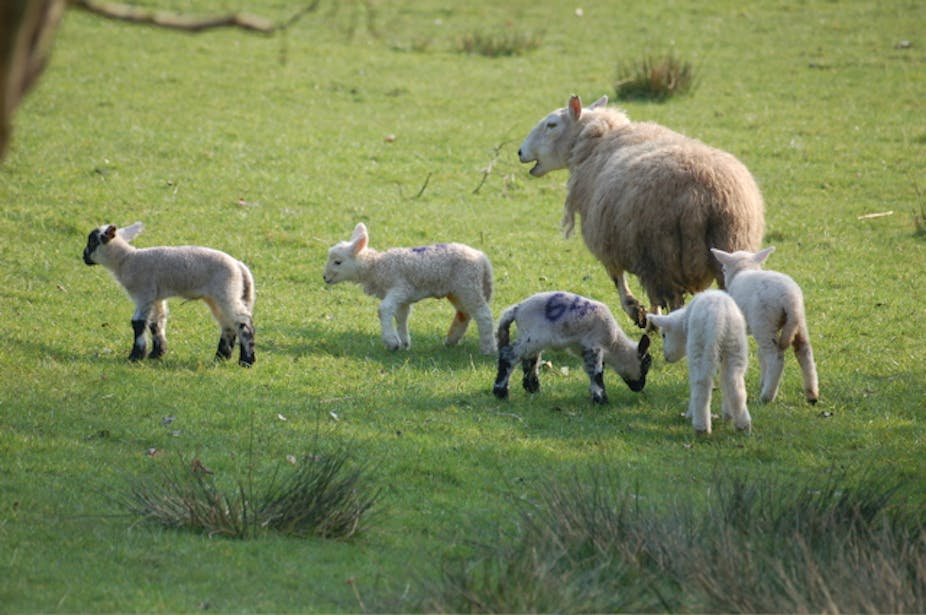Plaid Cymru’s agricultural and food policy contains a mixed bag of EU-wide and domestic policies. The manifesto pledges continued support for the Common Agricultural Policy (CAP). CAP is an EU policy, which delivers financial support to farmers, as well as helping promote wider rural economic activity. It transfers approximately £3 billion each year to the UK.
This is mostly allocated toward direct payments made to farmers in support of their farming activities, which are called “pillar one” payments. In contrast, “pillar two” directs funds into a range of measures, including the promotion of environmentally-friendly agriculture and rural economic activities, as well as supporting measures to help farmers become more efficient – such as investment into farms.
Pillar one is, in the main, not differentiated locally. Pillar two is very different: each nation must produce a Rural Development Plan (RDP), setting out how the money available will be spent on different measures. The Welsh RDP for 2020 is not yet finalised.
A gripe with the status quo
Despite being called “common”, many CAP decisions are delegated to member states. In the UK, many are then delegated to the separate nations. A key theme in Plaid Cymru’s manifesto is its disagreement with decisions taken in the Welsh Assembly, and how the party would wish to do things differently, if in power.
One of the few local decision related to pillar one concerns “modulation”. This involves top-slicing some of the direct payments – pillar one – and moving the money into rural development – pillar two. Plaid Cymru disagrees with the current approach for two key reasons.
First, because direct payments are so important to Welsh farmers, it opposes the decision to maximise the amount modulated into rural development. Second, it disagrees over the allocation of money to different elements of rural development, wanting more to be spent promoting economic efficiency. These points are broadly consistent – if 80% of Welsh farmers rely on direct payments to keep farming, this raises questions about their efficiency. That said, it is difficult to know exactly how many farmers need the payments to keep farming.
Plaid’s claim that modulation took over £250 million out of Wales’ rural economy is misleading. It is taking money out of direct payments to farmers, but is still available to Wales’ rural economy via rural development measures. The difference is that with direct payments, farmers do not have to do anything extra to receive it; whereas with rural development, bids would have to be made for project funding.
It is clear that Plaid Cymru believe Welsh farmers are largely dependent on direct payments, and that Wales’ rural development money should focus on measures aimed at improving efficiency. Their manifesto indicates that they believe funding for the latter should not come at the expense of the former.
Welsh meat for Wales!
Money that is lost from Wales is part of the Red Meat Levy. This is collected from abattoirs and used locally to promote meat. But with much Welsh meat going to English abattoirs, that money does not go back to Meat Promotion Wales but to the English equivalent. Meanwhile, the Groceries Adjudicator oversees imbalances in economic relationships between (large) supermarkets and (small) farmers. Strengthening their role would also give help to farmers in the marketplace.
The other measures also show Plaid Cymru’s support for Welsh agriculture. The European Protected Designation of Origin and Protected Geographical Indication schemes offer protection and promotion to named products from particular localities. With livestock farming particularly important, support for an Animal Welfare Commissioner – a proposal led by Plaid Cymru – also promotes the values of Welsh agriculture. So too is confronting food fraud (no more horse meat sold as beef!) and keeping agriculture GMO-free.
Yet it is not just about food producers. Consumers, especially the most vulnerable economically, would benefit from the proposed Food Waste Bill, which seeks to address the amount of food waste at the retail end of the food chain.
Overall, these measures represent a coherent set of goals for the promotion of Welsh agriculture. That said, Plaid Cymru’s ability to deliver on some measures is questionable. The party can continue to lobby for changes to the Red Meat Levy and push for a Food Waste Bill. But its ability to deliver changes to the modulation rate on direct payments – let alone to alter the policy priorities for spending within the next Rural Development Plan – are likely to be limited, within both the Welsh Assembly and the Westminster Parliament.

